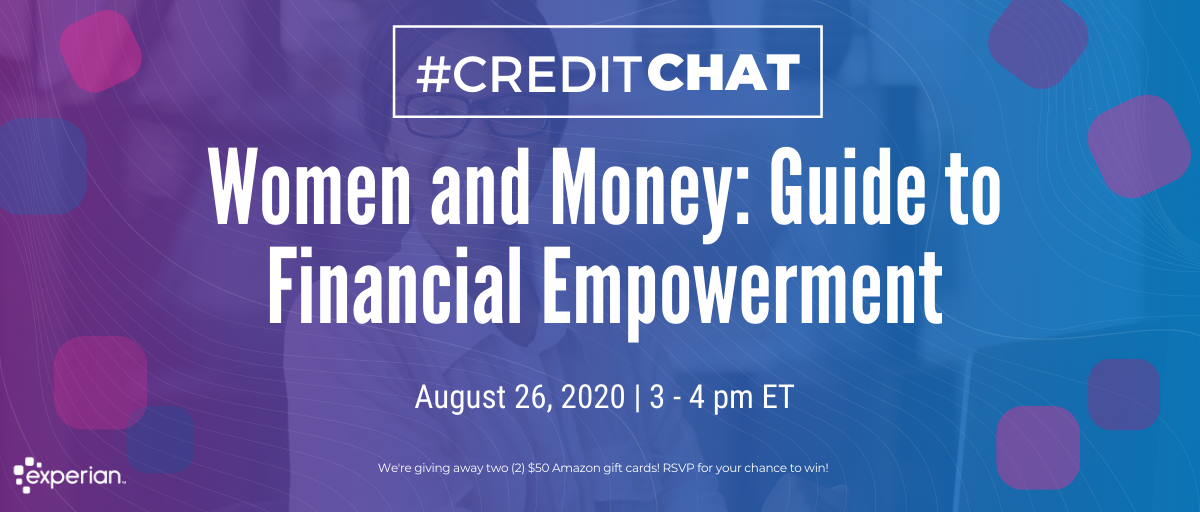Women and Money: Guide to Financial Empowerment

The panel included Rod Griffin: Senior Director, Consumer Education and Advocacy, Experian; Christina Roman: Consumer Education and Advocacy Manager at Experian; Take Charge America; Lawrence D. Sprung: CFP® President of Mitlin Financial, Inc; Beverly Harzog: Credit Card Expert and Consumer Finance Analyst for U.S. News; Paulina Likos: Investing Reporter at U.S. News; Alicia R. Hudnett Reiss: CERTIFIED FINANCIAL PLANNER™ and Leslie H. Tayne, Esq: Founder and Managing Director of Tayne Law Group, P.C. (f/k/a The Law Offices of Leslie H. Tayne, P.C.); Kembala Evans: Financial Coach, Speaker, and Author; Patrina Dixon: Certified Financial Educator; Danetha Doe: Freelance Writer and Creator of Money & Mimosas; and Kamilah O’Brien: Senior Financial Manager.
Questions We Discussed:
Q1: What unique challenges do women face when it comes to their finances?
Q2: How can women be more proactive during times of uncertainty and volatility?
Q3: Why are most women so hesitant to talk about money?
Q4: How can women improve their money mindset?
Q5: What are some tips that can help women advance in their careers and advocate for their work?
Q6: What are some strategies for women to achieve financial independence?
Q7: What are some financial measures all married women should know about their money?
Q8: What can girls and women do to become more financially confident?
Q9: What are some smart retirement strategies for women?
Q10: Any last-minute tips or thoughts on financial empowerment for women?
Retweet these insights from our community:
A1: There is a lot of responsibility that women place on themselves. In many cases women juggle a job, caring for their families and managing a home. All this comes with financial responsibility, which can be overwhelming. #CreditChat
— Paulina Likos (@Paulina_Likos) August 26, 2020
A2. Cut back on non-essential spending and increase contributions to savings. The pandemic has shown us how quickly things can change, and we must be ready for those changes when they happen. #creditchat
— Take Charge America (@TCAsolutions) August 26, 2020
A3. Many women have been conditioned to believe it’s rude or impolite to talk about money. But not being open about money allows things like the pay gap to continue. #creditchat
— Take Charge America (@TCAsolutions) August 26, 2020
A4: Don’t compare yourself to others, every woman is unique and has a different path and definition of financial success. Know your life values, focus on what’s important to you and your goals. It’s about you! #CreditChat
— Leslie H. Tayne, Esq (@LeslieHTayneEsq) August 26, 2020
A5: Ask for what you believe you deserve. That can be an increase, a promotion, an honorarium. Be sure your work product(s) or service(s) are undeniable. #CreditChat #ItsMyMoney
— It’s My Money™️ (@itsmymoney_) August 26, 2020
A6: One of the main lessons coming out of the pandemic is having an emergency account. We didn’t anticipate the devastating effects of the health crisis but if Americans had savings, it would have eased the financial burdens. #CreditChat
— Paulina Likos (@Paulina_Likos) August 26, 2020
A7. Married women should make sure to build credit in their own name, they should be involved in the financial planning process and know all advisors to the family.
In today’s digital age it is also important to know the passwords to online accounts.#CreditChat https://t.co/lLWUJpJECS— Larry Sprung, CFP® (@Lawrence_Sprung) August 26, 2020
A8: We need men to make sure their daughters and granddaughters know they have a right to be successful and confident. #creditchat
— Rod Griffin (@Rod_Griffin) August 26, 2020
A9. Always sign up for your company’s 401(k) if offered. When planning how much you will need for retirement, always factor in time away from the workplace if you plan to start a family. https://t.co/vkz1o1wR2N #CreditChat
— Jennifer White (@Jennifer_Wwhite) August 26, 2020
A10: Don’t be afraid to ask for help. Managing your money is a learning process, and you’ll probably make mistakes. Calling a nonprofit credit counseling agency can be a good way to get back on track if you need help managing your debt. #CreditChat pic.twitter.com/IpuWThetlp
— American Consumer Credit Counseling (@ACCC_TalkCents) August 26, 2020